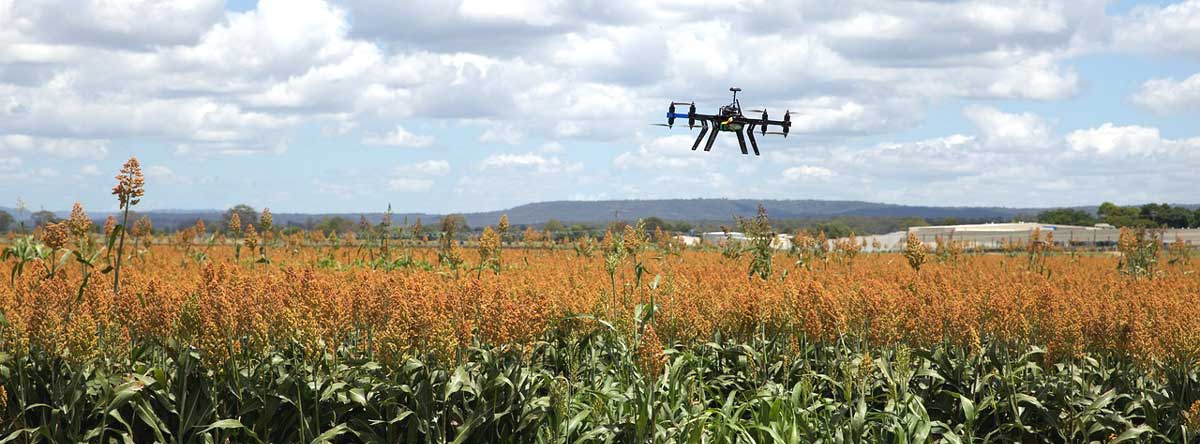The integration of AI technologies is radically transforming agriculture and presents new opportunities to drive efficiency, sustainability and productivity through smarter systems.
From small family-owned farms to large agricultural conglomerates, Artificial Intelligence (AI) technologies are reshaping farming, leading into a new era of productivity and sustainability. AI is not just a buzzword in the agricultural sector; it’s a game-changer. By integrating AI into farming practices, the chain is seeing significant improvements in efficiency and productivity. Precision farming, powered by AI, allows farmers to optimize their resource usage, ensuring that crops receive exactly what they need for optimal growth. This approach minimizes waste and maximizes yield.
Moreover, AI plays a pivotal role in crop monitoring and disease prediction. Through advanced sensors and data analytics, farmers can now get real-time insights into the health of their crops. AI algorithms can predict pest infestations or diseases even before they become visible to the human eye, enabling proactive measures that save both time and resources.
Real-World Applications
- Consider the case of a vineyard in California that implemented AI for monitoring grape maturity. By using AI-driven imaging and data analysis, the vineyard could precisely determine the optimal time for harvest, ensuring the best possible wine quality.
- Another example is the use of drone technology in large farms for crop monitoring. Drones equipped with AI can analyze crop health over vast areas, providing data that helps in making informed decisions about irrigation and fertilization.
AI-enabled monitoring provide early warning for diseases, pests, and other crop risks. Instead of manually scouting fields, farms can use AI-equipped drones and satellites to regularly scan vast areas and detect issues in real time before they escalate. This allows preventative action and saves dramatically on time, labor and losses.
The key challenges will be building the right data infrastructure and integrations to capture value from AI. This requires investments in sensors, connectivity, data pipelines and labeling. High-quality datasets are needed to train machine learning models. Ongoing maintenance and monitoring is also crucial to ensure continuity of insights.
Another priority is cultivating talent. Data scientists and engineers needed to deploy these systems and optimize them over time may be in short supply. Upskilling existing staff or hiring those with AI expertise will become increasingly important.
While the benefits are plentiful, there are challenges too. Implementing AI in agriculture requires significant investment, not just in terms of money but also in learning and adapting to new technologies. Additionally, there is a need for skilled personnel who can operate and maintain these AI systems.
From a sustainability standpoint, AI can lead to more environmentally friendly farming practices. However, we must also consider ethical aspects like data privacy and the potential impact on employment in the sector.
Emerging trends like advanced robotics for automated harvesting and AI-driven genetic engineering promise to further revolutionize agriculture. These innovations could lead to higher crop yields, better quality produce, and more efficient farming practices.
Some Helpful Resources:
- AIFARMS – Artificial Intelligence for Future Agricultural Resilience, Management, and Sustainability Institute: AIFARMS serves as a hub for multidisciplinary research teams focusing on advancing AI to address challenges in global agriculture. They emphasize technologies impacting production practices, and their research covers areas like autonomous farming, efficiency for livestock operations, environmental resilience, soil health, and technology adoption. This resource is particularly useful for farmers looking to understand the broader scope of AI in agriculture.
- NIFA’s Precision, Geospatial and Sensor Technologies Programs: NIFA provides comprehensive information on how AI is being applied in agriculture and the food supply chain. The site discusses AI’s role in machine learning, data visualization, natural language processing, intelligent decision support systems, autonomous systems, and their novel applications to agriculture and food production. They cover areas such as agricultural systems and engineering, natural resources and environment, and economics and rural communities. This is an ideal resource for farmers interested in the diverse applications of AI in agriculture.
- Precision Farming Dealer: This website offers insights into AI companies leading the way in precision agriculture. It’s a great resource for farmers looking to stay updated on the latest AI innovations and companies in the agriculture sector. The site provides information on various AI companies and their contributions to precision agriculture, making it a valuable resource for farmers interested in the latest technological advancements.

